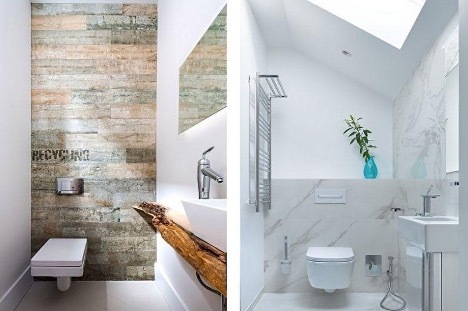There are several ways to bend a metal-plastic pipe. The easiest way is to do this manually, using your knee if necessary. But this option is only suitable for pipes with a cross-section of no more than 20 mm. Therefore, it is necessary to consider other methods, which are discussed in the presented article.
The content of the article
- Bending methods
- How to calculate radius
- Step-by-step instruction
Bending methods
There are several ways to bend metal-plastic pipes. The following technologies are used at home:
- Manually is the simplest method that does not require the use of equipment. However, it has limitations - it is allowed to work with pipes with a diameter of no more than 20 mm. In addition, during installation it is easy to make a mistake and apply unnecessary force, which will damage the metal layer of the product and make it last less.
- Using a spring is a more convenient way to bend metal-plastic pipes at home. Suitable for products with medium-hard metal-plastic. To work you will need a fairly stiff spring. A wire is attached to it at one end, then they begin to work.
- Using stiff wire. This is a more complex method, but it allows you to achieve better results. The bending radius of polyethylene pipes is preliminarily calculated (more on this below) and a wire is inserted inside, which plays the role of a frame. The technology is approximately the same as in the case of a spring.
- Using sand is the most difficult option for bending a metal-plastic pipe at home. This method is used as a last resort when there is no spring of the required size. The internal cavity is filled to the top with sand, plugs are put on both sides and clamped in a vice in the middle. Then the pipe is heated with a blowtorch and, when the sand is hot, it is bent, after which it is poured out.
- Finally, you can purchase inexpensive equipment - a pipe bender. This is a mechanical or hydraulic device that allows you to bend all types of pipes at different angles. But it is rarely used at home, since the amount of work is usually small.
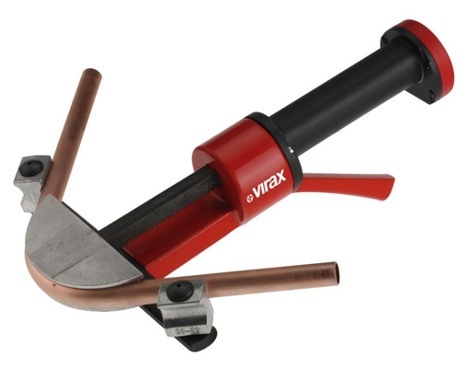
How to calculate radius
In order to do the job efficiently, it is very important to calculate the exact bending radius of the HDPE pipe. In a simplified way, we can say that the radius should be equal to the diameter of the section multiplied by 5:
R=5d
For example, if the pipe cross-section is 10 mm, then the radius should be 50 mm, if 20 mm - 100 mm, etc. A more accurate calculation is made using the formula:
2*Π*R*φ/2
Here R is the radius of curvature, which is equal to 5 diameters, π is a constant of 3.14, φ is the bending angle (measured in radians, with 1 radian being 180 degrees). To accurately assess how to bend cross-linked polyethylene, you can consider the following example:
- Measure the length of the pipe C = 100 mm.
- The radius is calculated based on the section length of 20 mm: R = 20*5 = 100 mm.
- A quarter of the circumference is determined: C = 2πR/4 = 2*3.14*100/4 = 157 mm.
- It turns out that for work you will need a pipe 157 mm long. A mark is made in the middle and the angle is calculated from this. It should be taken into account that every 1-2 cm corresponds to 15 degrees, so every 6-12 cm corresponds to 90 degrees.
Step-by-step instruction
When the bending radius of cross-linked polyethylene pipes is known, you can begin to work. The main stages are:
- Mark the middle.
- Place 2 thumbs on it.
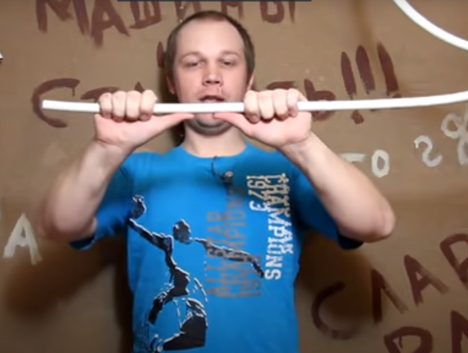
- Begin to bend carefully.

- Get a right angle of 90 degrees.

- Or 180 degrees, if necessary.

It is important to understand how to correctly bend a metal-plastic pipe. You should not allow a strong bend of more than 180 degrees, because in this case the product will break. If you need to make bends in opposite directions, proceed as follows:
- Again we get an angle of 90 degrees.

- Place both hands on one side of this angle.

- And form a second bend.
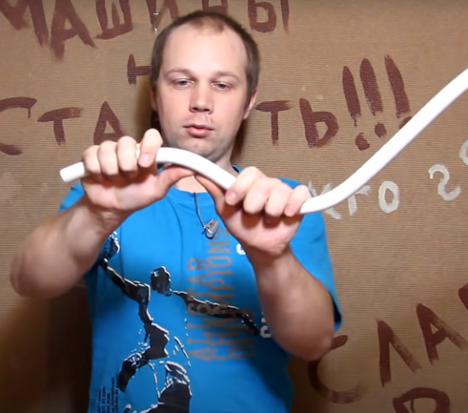
- The result is a design like this.
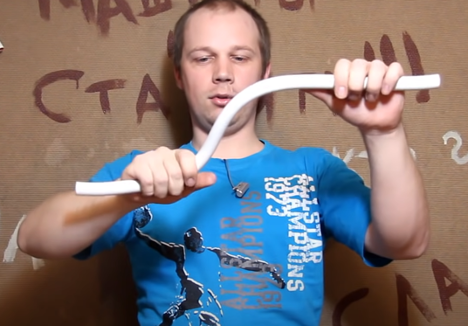
- If the material is quite hard and you don’t have enough strength, you can bend it over your knee.

Thus, pipes can be bent manually, but only of small diameter. If it exceeds 20mm, a stiff wire or spring must be used. When the volume of work is large, it is better to buy special equipment - a pipe bender.
